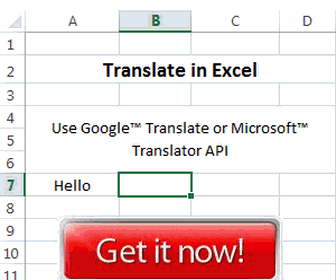Beginning a local web hosting business can be profitable, particularly with the increasing need for web hosting services.
However, before getting started, conducting thorough research on the local web hosting market is crucial.
This research should aim to identify potential competitors and target audiences.
This article will guide you through researching the local web hosting market and provide insights into potential competitors and target audiences.
How to Start a Web Hosting Business in 5 Simple Steps
Step 1: Market Research
To start a successful web hosting business, you must understand the demand for your services in the target market and analyze your potential competitors.
This involves reviewing their pricing strategy and identifying their target audience to gain insights into the market and differentiate their offerings.
Some business owners even go as far as writing an eCommerce business plan. You can do this as well, because it will give you a roadmap for your web hosting business.
If you want to start a web hosting business, you need to be assertive and take the following steps:
- Research the demand for web hosting services in your target market.
- Analyze your competitors, both large-scale providers and smaller, niche-focused companies.
- Gain insights into the needs and preferences of your target customers.
- Stay updated on industry trends and developments in web hosting technology and services.
- Analyze the pricing strategies of your competitors and determine how you can position your services competitively.
- Look for untapped opportunities in the market where you can differentiate your business and provide unique value.
Step 2: Choose a Niche
One way to differentiate yourself from competitors is by specializing in a specific niche or target market. For instance, you could focus on hosting services for small businesses, e-commerce websites, or WordPress sites.
To succeed in the highly competitive web hosting market, it’s crucial to focus on a specific niche.
By doing so, you can differentiate your business, target your marketing efforts, develop expertise, create customized solutions, command higher prices, and face less competition.
It’s a proven strategy that can help you become a dominant player in your niche and achieve long-term success.
Want to learn more about niches? Read our article on What is a Niche here.
Click HereStep 3: Select a Hosting Platform
Decide whether you want to build your infrastructure or resell hosting services from an established provider. Building your infrastructure requires significant investment in hardware, software, and technical expertise, while reselling allows you to start with minimal investment.
- Shared Hosting Plans: Ideal for individuals and small businesses with basic website needs. It provides an affordable option with essential features like a control panel, email accounts, and one-click installers for popular CMS platforms.
- Virtual Private Servers (VPS): VPS are suitable for websites with higher resource requirements and more control over server configurations. VPS hosting offers scalability and performance enhancements compared to shared hosting.
- Dedicated Servers: This server offers maximum performance, security, and control by leasing an entire physical server. It’s best suited for large websites and applications with specific resource requirements.
- Cloud hosting: It provides scalability, reliability, and flexibility by utilizing a network of virtual servers. Cloud hosting is ideal for websites and applications with fluctuating traffic levels or unpredictable resource requirements.
- WordPress Hosting: Optimized specifically for hosting WordPress websites, offering features like automatic updates, caching plugins, and specialized support. It’s perfect for bloggers, small businesses, and anyone building websites with WordPress.
- E-commerce Hosting: Tailored for hosting online stores with features such as SSL certificates, secure payment gateways, and support for e-commerce platforms like Magento, Woo-Commerce, or Shopify. It provides the necessary infrastructure for running a successful online store.
Step 4: Set Up Your Infrastructure and Create Hosting Plans
- Set Up Your Infrastructure: If you choose to build your infrastructure, purchase servers, networking equipment, and software necessary for hosting websites. Ensure your infrastructure is scalable to accommodate future growth.
- Create Hosting Plans: Develop hosting plans tailored to the needs of your target customers. Consider factors such as disk space, bandwidth, uptime guarantees, security features, and customer support.
- Build a Website: Create a professional website that showcases your hosting plans, features, pricing, and support options. Make it easy for potential customers to sign up for your services and manage their accounts.
- Set up Billing and Support Systems: Implement a billing system to manage customer payments and automate recurring billing. Set up customer support channels such as email, live chat, and a ticketing system to assist customers with technical issues and inquiries.
Step 5: Market your business
Finally, promoting your web hosting business through online and offline channels is important. There are several eCommerce marketing strategies and eCommerce marketing tools you can use.
Some examples are SEO, social media marketing, content marketing, online advertising, eCommerce email marketing, and networking events. Offering promotions and discounts can help attract new customers and establish a loyal customer base as well.
With careful planning and execution, starting a local web hosting business can be a profitable and sustainable endeavor. Examples of eCommerce marketplace platforms for marketing your business include:
- Google Ads (formerly Google AdWords)
- Facebook Ads
- LinkedIn Ads
- Instagram Ads
- Twitter Ads
- YouTube Ads
- Content Marketing Platforms
- Email Marketing Platforms
- Affiliate Marketing Platforms
In Conclusion
Starting a local web hosting business requires extensive research on the market, selecting a specific niche, choosing the right platform, setting up the necessary infrastructure, and implementing an effective marketing strategy.
You can attract clients by specializing in a specific market, such as small businesses or WordPress sites, and utilizing platforms like Google Ads, Facebook Ads, and LinkedIn Ads.




















3 Comments
Your blog is like a breath of fresh air in a sea of negativity and pessimism Thank you for being a source of light and hope
Hi i think that i saw you visited my web site thus i came to Return the favore I am attempting to find things to improve my web siteI suppose its ok to use some of your ideas
Thank you for checking back on our website. Please feel free to use some of the ideas on our website. If you need more help, please let us know.